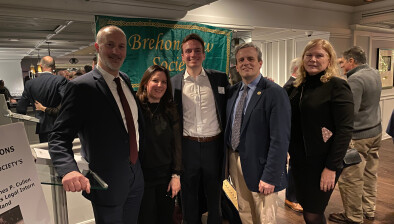NI: Belfast Crown Court: Ex-soldier’s application to stay prosecution is refused
A former soldier who has been indicted on two counts for his involvement in the killing of an unarmed man who was running away from soldiers in 1974 has had his application to stay his prosecution refused in Belfast Crown Court.

About this case:
- Judgment:refused" target="_blank">External link
Satisfied that a fair trial would be possible, Mr Justice Colton rejected all arguments submitted to support the former soldier’s contention that the prosecution was an abuse of process.
Background
Ex-Soldier, Dennis Hutchings, faces counts of attempted murder and attempted grievous bodily harm with intent of a man who was killed in June 1974. John Patrick Cunningham, who was described as having “the mental age of a child”, was unarmed and running away from soldiers when he was fatally shot by Mr Hutchings and “Soldier B” (now deceased).
The prosecution submitted that five shots were fired at the scene; two by Soldier B and three by Mr Hutchings. As the prosecution was unable to prove that any of the shots fired by Mr Hutchings were responsible for Mr Cunningham’s death, Mr Hutchings could not be charged with murder – but it was submitted that there is a safe inference that Mr Hutchings either intended to kill or cause grievous bodily harm in circumstances where the deceased was running away and was no threat to the soldiers.
Application to stay the indictment
Mr Hutchings made an application to stay the indictment on the grounds of abuse of process, based on:
Justice Colton set out the “two basic grounds upon which a criminal trial may be stayed”:
The application of these principles were set out by the Court of Appeal in R v McNally and McManus NICA 3, and were cited by Justice Colton in his judgment. Justice Colton explained that all of the authorities emphasised that the imposition of a stay was an “exceptional course” (R v Derby Crown Court ex p Brooks 80 Cr App R 164; Ex parte Bennett 1 AC 42; Re DPP’s Application NI 106; R v P NICA 44; and R v McNally and McManus considered)
The investigation and unavailability of evidence
Justice Colton then considered whether Mr Hutchings could receive a fair trial, explaining that Mr Hutchings was “very critical of the investigation of this shooting” and had pointed to the unavailability of material and/or exhibits.
Accepting that there were “many shortcomings ad flaws in the investigation”, Justice Colton said that he did not see how they caused actual or real prejudice to Mr Hutchings. Justice Colton also explained that criticism levelled at the possibility that other soldiers may have discharged their weapons could be tested at trial, and that it was open to Mr Hutchings to renew his application when evidence has been heard and tested.
Justice Colton was satisfied that there was sufficient evidence to put Mr Hutchings on trial, and that the clear public interest in prosecuting those accused of serious crim underpins the principle that the power to order a stay should be exercised sparingly.
Delay
In considering delay in the prosecution, Justice Colton said that the position was summarised in R v S (SB) . Stating that it was self-evident that there had been very significant delay in the case which was entirely attributable to the prosecution, Justice Colton admitted that he was “uneasy about any prosecution 40 years or more after the relevant events”.
Nevertheless, Justice Colton was satisfied that in the absence of any statute of limitations, a fair trial would be possible.
Breach of promise
Finally, considering the second limb of the test, Justice Colton said that this was primarily based on breach of promise – based upon a letter in which it was stated that there would be “no prosecution of any military personnel” arising out of the shooting of Mr Cunningham.
Considering R v McNally and McManus, Justice Colton said that there was no evidence of “executive manipulation or bad faith” in this case.
In addition to an unequivocal representation, Justice Colton added that granting a stay on the basis of a breach of promise required evidence that the defendant had acted to his detriment (Latif 1 All ER; R v Horseferry Road Magistrates’ Court, ex parte (Bennett) 1 AC 42; and Re Wilson (Jason) v PPS NIQB 102 NIJB 101 considered). Distinguishing R v Downey, Justice Colton was satisfied that the trial judge in Downey had “rejected arguments of the type relied upon by the defendant in this case”.
Finding that the public interest in prosecution was not outweighed by Mr Hutchings being informed in 1974 that he would not face prosecution, and that the fundamental issue of the fairness of the trial had been considered, Justice Colton refused to stay the prosecution.









